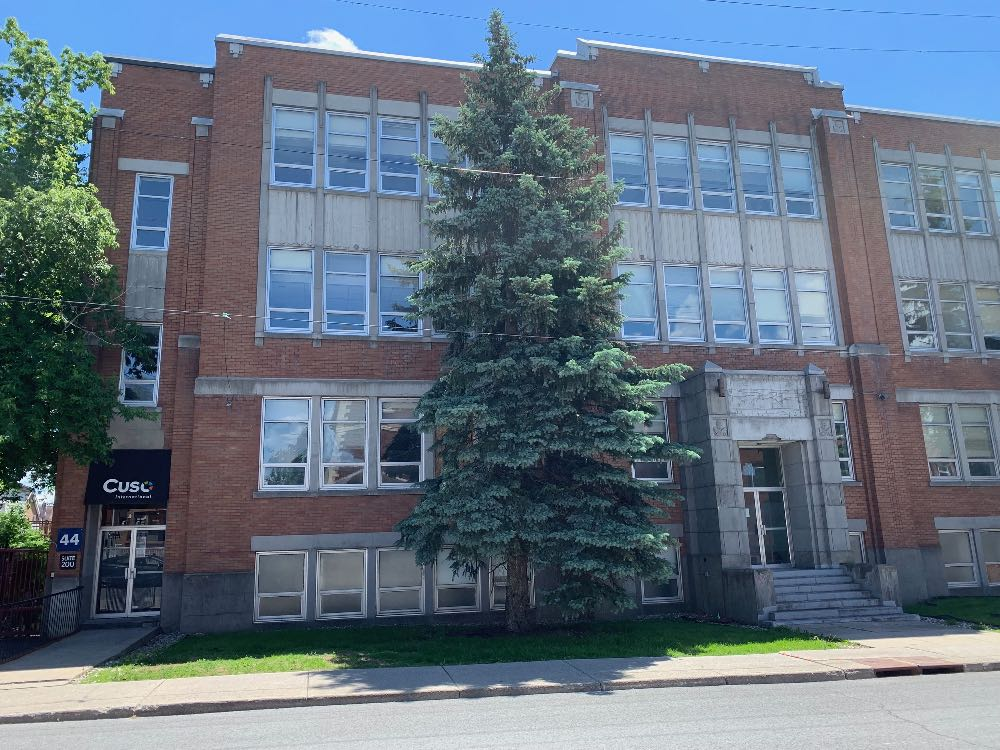Cornerstone Housing for Women is struggling to raise $1 million in the private sector five months after losing that amount in federal funding.
That is only one of the challenges facing a staff working hard to maintain services as they deal with steep food inflation, steadily increasing demand for their services and a shortage of properly trained staff.
Amber Bramer, director of development and communications, says Cornerstone has no choice but to appeal to the community in two ways—asking for financial donations and lobbying governments for more funding. “We’re trying really hard to get more corporate giving,” she says. “Government funding is just not what it used to be.”
Even the good news of a new supportive housing residence at 44 Eccles Street comes with a challenge. The new residence building has been undergoing renovations and is on track to open late this year or early next.
Four more chefs will be needed to provide food—three meals a day—to the 46 residents at Eccles Street as well as the emergency shelter, Booth Street and Princeton Avenue locations. The number of women served will go up from 100 to 150.
Food costs increased by 18 per cent last year, and they are on track for a similar or even larger increase this year. To meet the increased cost, a special campaign to raise $40,000 through the Giving Tuesday program has been under way.
Food service is efficiently supplied out of one location—the Booth Street Residence where there is a commercial kitchen—to the shelter and other locations, including Eccles Street when it opens.
“We see a whole new landscape of people needing support,” Bramer says. “We see more people suffering from abuse and disorders, more not being able to access the right support [to prevent] them from going back into homelessness. It’s why our supportive housing model is so important. And 44 Eccles Street is a tangible way we can make a real difference.”
Unfortunately, providing the right support is another challenge. “People aren’t getting the right training for dealing with the mental illness and health issues that are in our sector,” Bramer says. She calls for more government funding to train front-line social services specialists.
The emergency shelter has seen a huge increase in refugee claimants. Its 60 beds are occupied every night and frequently the shelter has to try to find alternative accommodation in City of Ottawa overflow facilities. Adding extra sleeping units is not feasible.
Cornerstone’s McPhail Residence is specifically designed to support refugees, but its capacity of six rooms means finding help elsewhere.
Cornerstone, along with other agencies, has struggled since April when the loss of $1 million in federal pandemic funding coincided with a reduction in new budget funding from the Ontario government. Queen’s Park allocated only 0.4 per cent of new homelessness funding to Ottawa. Toronto got 60 times more, while being three times larger than Ottawa.
Since then, agencies including Cornerstone have worked through Alliance to End Homelessness Ottawa to ask the Ford government to reconsider. The alliance has launched an “Ottawa Needs More Campaign” on its website, urging residents to write to the premier and housing minister.
In her own letter to the premier and housing minister, Kaite Burkholder Harris, executive director of the Alliance, says the funding levels are deeply inequitable and unless changed they will result in a reduction or even closing of some services across the city.
Cornerstone Housing for Women is a Community Ministry of the Anglican Diocese of Ottawa.



Church of the Ascension, Ottawa — Deanery of Central Ottawa